Common Actions Following a Traumatic Brain Injury in Texas
Brain injuries can occur in numerous types of accidents, including car crashes, slip-and-falls, or on-the-job incidents. The result can sometimes be a catastrophic injury that requires long-term medical support and prevents someone from earning the same income they did before the accident.
You can review the Texas Brain Injury Resource Guide published by the Texas Department of Health and Human Services to learn more about navigating life after a brain injury and some of the available resources in the state. Assistance with prescriptions, physical therapy, and mental health services can be helpful in dealing with a traumatic brain injury. Still, you may also want to consider your legal options in seeking financial compensation for losses if you or someone you love is dealing with a traumatic brain injury that might be the fault of another party.
Seek Compensation From Medical Insurance
Begin by understanding current medical insurance coverage and other related benefits. Your health insurance may help ensure you have access to and can pay for immediate medical treatments. If you don’t have medical insurance or it won’t cover the medical interventions you or your loved one need, discuss options with providers such as applying for Medicaid or completing paperwork to apply for payment plans. Discussing your options with personal injury attorneys early on can be helpful, as compensation and coverage from various sources can impact other possibilities, and it helps to have a plan of action.
Consider Whether Other Insurance Policies Might Come Into Play
Consider whether other policies might provide some compensation for losses or financial assistance as you seek to find a new normal following a traumatic brain injury. Short- and long-term disability insurance, for example, might provide replacement income if you cannot work due to your injuries.
Pursue Workers’ Compensation
If your traumatic brain injury is the result of an incident that occurred while you were on the job, you might be able to seek coverage under your employer’s workers’ compensation plan. To do so, you generally need to meet specific requirements, and attorneys can help you understand whether this is a good path for you and how to apply and deal with any denials or appeal processes.
File a Medical Malpractice Claim
In some cases, traumatic brain injury might result from errors or other issues in the process of treating a different condition. If a doctor or other clinician took action that might have been causal in your traumatic brain injury, you could have a medical malpractice case. Again, personal injury attorneys who are experienced in such cases can help you understand what your options are and how you might best seek compensation.
File a Personal Injury Lawsuit
Other types of personal injury lawsuits might also be relevant in a traumatic brain injury case. If you were injured in a car crash that was the fault of another party, for example, you may be able to seek compensation from another driver and their insurance company.
In any personal injury case involving brain injury, you will need to prove a variety of facts. Those include, but aren’t limited to:
- The fact that you do have a serious brain injury. You may need to present medical records, video or photographic evidence, and witness testimony. Witnesses in these types of cases might include personal witnesses who can talk about your health and lifestyle before the accident versus afterward and professional experts such as doctors who can talk about your injury in clinical terms.
- That your injury is related to the incident in question. You might need to prove that this is not a pre-existing condition and that it was, indeed, caused by an accident or other incident.
- That someone was liable in the incident. Liability requirements differ depending on your case. Workers’ comp cases, for example, don’t require your employer or anyone else to be at fault in the incident. But a personal injury case involving a car crash or premisis liability would require you to demonstrate someone else was negligent.
At the Alfred Firm, we do the work. We guide you through the options for your personal injury case so you can make an educated decision about seeking compensation. Then we work to build a case on your behalf, gathering evidence, deposing witnesses, negotiating with other attorneys, and presenting your case in court if necessary.
Discuss Options for Punitive Damages
As you work with your attorneys regarding a brain injury case, ask about options for seeking punitive damages. These are rarer than economic damages, which are tied to amounts you can calculate such as lost wages and medical bills. Punitive damages are typically meant as a sort of “punishment” for especially egregious negligence and, if an option in your case, can increase the amount of compensation you might receive.
Get Help From a Personal Injury Attorney Experienced in Brain Injury Cases
Victims of traumatic brain injury often deal with medical needs and may have to find a completely new normal. One path to doing so starts with speaking with a personal injury attorney. Contact the Alfred Firm to discover how our team of personal injury attorneys can help in your traumatic brain injury case. Make an appointment by calling 713-489-1875.

 Call Us Now
Call Us Now Email Us Now
Email Us Now


